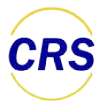
Effective debt recovery starts long before an account becomes overdue. One of the most powerful tools businesses and institutions can use to reduce delinquent receivables is proactive communication. Setting clear payment expectations, maintaining open dialogue, and recognizing warning signs early can make the difference between healthy cash flow and costly collections. Whether you’re dealing with commercial accounts, higher education tuition balances, medical billing, or financial obligations, clear communication is the foundation of success.
Debt recovery is not simply about chasing unpaid bills—it’s about creating systems and conversations that prevent accounts from becoming delinquent in the first place. In this blog, we’ll explore how businesses can establish and maintain strong communication protocols to set expectations, minimize risk, and know when it’s time to turn to professional help. With increasing pressure on budgets and rising payment defaults across sectors, building a proactive strategy is more important than ever.
The Connection Between Accounts Receivable and Debt Recovery
Accounts receivable (AR) represent the unpaid invoices owed to a business by its clients. This line item, while often overlooked in day-to-day operations, is a vital component of your company’s financial health. When AR ages beyond terms, it transforms into a potential liability—delinquent receivables that may require intensive effort to recover.
A seamless transition from invoicing to payment collection depends on more than just due dates; it depends on a structured communication plan. Proactive reminders, dispute resolution channels, and a sense of urgency conveyed early can all increase the likelihood that accounts are paid on time. Conversely, when communication is vague or inconsistent, misunderstandings grow, and debts are more likely to remain unpaid.
Why Payment Expectations Matter
When customers understand your payment expectations from the beginning, they’re far less likely to fall behind. Clarity creates confidence. Be specific about due dates, acceptable payment methods, early payment incentives, late fees, and the consequences of non-payment.
This not only fosters transparency but also strengthens your position should you need to escalate. In higher education, this might mean detailing tuition due dates, billing cycles, and financial aid disbursements. In healthcare, it could involve explaining deductibles, insurance processes, and out-of-pocket expectations. For commercial clients, it means integrating payment terms into vendor contracts and service-level agreements. The more upfront you are, the fewer disputes and surprises will arise.
Communication Strategies That Work
Successful communication starts with having a strategy and following through consistently. Here are methods proven to reduce delinquent receivables:
- Written Agreements: Ensure contracts and statements of work include specific payment terms, net due dates (e.g., Net 30), and penalties for delays. Include a clause that outlines what happens if the account is sent to collections.
- Onboarding Communication: During client onboarding, reiterate payment terms in plain language, both in writing and verbally. A good first impression sets a cooperative tone.
- Automated Reminders: Implement email and SMS reminders 5 days before payment is due, on the due date, and again if payment is late. Many invoicing systems support this.
- Personalized Outreach: High-value or repeat customers should receive direct calls or emails if a payment is delayed. Expressing concern rather than frustration can encourage honesty and prompt resolution.
- Use of Visual Aids: Charts or infographics in client welcome packets showing the billing cycle can demystify the process.
- Segmented Messaging: Tailor communication style based on industry. Educational institutions may need softer, student-focused language, while commercial accounts may respond better to concise, policy-driven messaging.
Recognizing Warning Signs of Delinquency
Identifying red flags before a client defaults is key to protecting your cash flow. Watch for these signs:
- Payment history changes: Clients who previously paid early or on time start delaying payments.
- Communication avoidance: Repeatedly ignoring emails or calls is a major indicator.
- Vague responses: Ambiguous replies about payment status often signal financial trouble.
- Requesting new terms: A sudden need for a payment plan or deferral could indicate cash flow issues.
- Operational signals: Layoffs, reduced orders, or new leadership at a client company can all impact payments.
Training your accounts receivable staff to spot and respond to these behaviors can reduce the need for outside debt recovery later.
Handling Difficult Conversations
Challenging payment discussions are a necessary part of business, but they don’t have to damage relationships. Preparation is key. Know the client’s payment history, have all documentation at hand, and set a goal for the conversation.
Use empathy and professionalism. Open with curiosity: ‘I noticed your last invoice hasn’t been paid—can you tell me if everything’s alright on your end?’ This creates space for honesty. Offer payment plan options if appropriate, and always recap the discussion in writing.
Avoid aggressive or accusatory language. Focus on solutions, timelines, and mutual benefit. Document every touchpoint to maintain transparency and compliance—especially in regulated sectors like healthcare and finance.
When Internal Collection Isn’t Enough
Not all businesses have the bandwidth, technology, or legal resources to manage overdue accounts effectively. Internal teams may be equipped to send reminders, but not to track down evasive clients or pursue legal remedies.
This is particularly true in industries where debt recovery has additional complexities—FERPA regulations in education, HIPAA compliance in healthcare, or contractual obligations in B2B trade. Professional collection agencies bring structure, legal awareness, and persistence.
If a balance is over 90 days past due, or if the client has become unresponsive despite multiple contact attempts, it’s time to escalate. The sooner an agency is involved, the higher the likelihood of recovery.
Benefits of Hiring a Professional Debt Recovery Agency
A skilled debt recovery agency doesn’t just collect—it protects your brand, ensures compliance, and relieves internal burden. Key benefits include:
- Expertise in Negotiation: Agencies are trained to negotiate payments professionally and effectively.
- Legal Knowledge: Understanding of federal and state laws surrounding collections, disclosures, and privacy.
- Industry-Specific Tactics: Custom approaches for tuition, medical bills, vendor contracts, and consumer loans.
- Advanced Tools: Access to skip tracing databases, credit reporting services, and legal networks.
- Improved Recovery Rates: Third-party involvement often motivates debtors to act quickly.
Choosing the right agency means more than recovering revenue—it means securing peace of mind.
Why Choose Us
Our agency understands that every industry—and every client—requires a tailored approach. We specialize in:
Commercial Collections
Recovering B2B debts while maintaining partner relationships.
Higher Education Collections
Navigating the balance between policy and empathy with students and families.
Medical Collections
Ensuring HIPAA compliance and sensitive patient handling.
Financial Collections
Managing past-due loan balances with professionalism and accuracy.
We operate with transparency, compliance, and effectiveness. Whether you need full-service outsourcing or help on specific accounts, we’re here to support your team and improve your cash flow.
Contact CRS Today!
Avoiding delinquent receivables starts with intentional, consistent communication—but when that fails, don’t let revenue slip through the cracks. Partner with professionals who know how to handle sensitive accounts and maximize returns.
Ready to improve your accounts receivable performance? Contact our team today for a no-obligation consultation. We’ll help you build a proactive payment strategy—or recover the funds you thought were lost.



